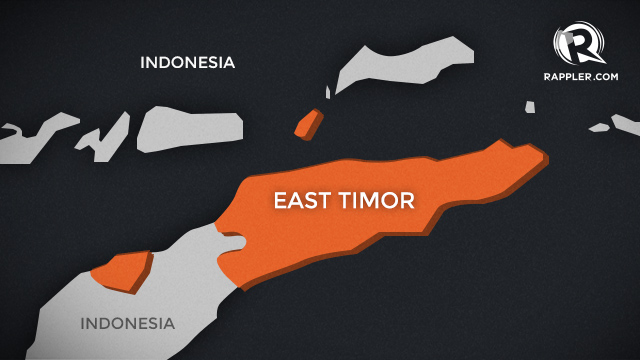SUMMARY
This is AI generated summarization, which may have errors. For context, always refer to the full article.

SYDNEY, Australia – The East Timorese government believes it has identified a number of Australian spies who allegedly bugged its offices, accusing them of using an aid program as cover, reports said Tuesday, December 10.
East Timor is involved in an arbitration case at The Hague against Australia, accusing it of spying to gain a commercial advantage during negotiations on the Timor Sea gas treaty, which covers the vast gas field between the two nations.
“We think we have identified the team of people who came in to do the bugging. We have their names,” Alfredo Pires, East Timor’s Natural Resources Minister, told The Sydney Morning Herald.
“They are males, along with a possible lady spy.”
East Timor’s key witness in its case at The Hague, a former Australian Secret Intelligence Service (ASIS) officer, will allege the agency used an aid project renovating East Timor’s cabinet offices as a front to install listening devices in the walls during the gas treaty talks in 2004.
Pires declined to name the group, which he said were discovered by checking flight and other records, but said at least one of them was still working overseas under the same name.
The minister said it appeared that the listening devices, which were allegedly placed in the prime minister’s office and rooms frequently used for cabinet discussions, were smuggled in by “diplomatic couriers”.
Pires told The Australian newspaper the group comprised three men and a woman.
“The bugging was done through an aid project … We’re not sure if they were acting as aid workers,” he told that newspaper.
East Timor accuses Australia of spying to gain a commercial advantage during negotiations of the Certain Maritime Arrangements in the Timor Sea, or CMATS, arguing in The Hague that the 50-50 profit-sharing deal of Aus$40 billion (US$36 billion) in proceeds should be torn up.
Pires said the idea that spies had posed as aid workers was “disturbing”.
“I know many aid workers from Australia. They are good people and this doesn’t help them,” he told The Herald.
Australian Greens leader Christine Milne said the claims were not helpful for aid agencies which worked on relationships of trust.
“It really means people working in Australian aid programs around the world will be under suspicion,” she told reporters.
“It’s really important now that the Australian government accepts there needs to be an inquiry into the overreach of our agencies.” – Rappler.com
Add a comment
How does this make you feel?
There are no comments yet. Add your comment to start the conversation.